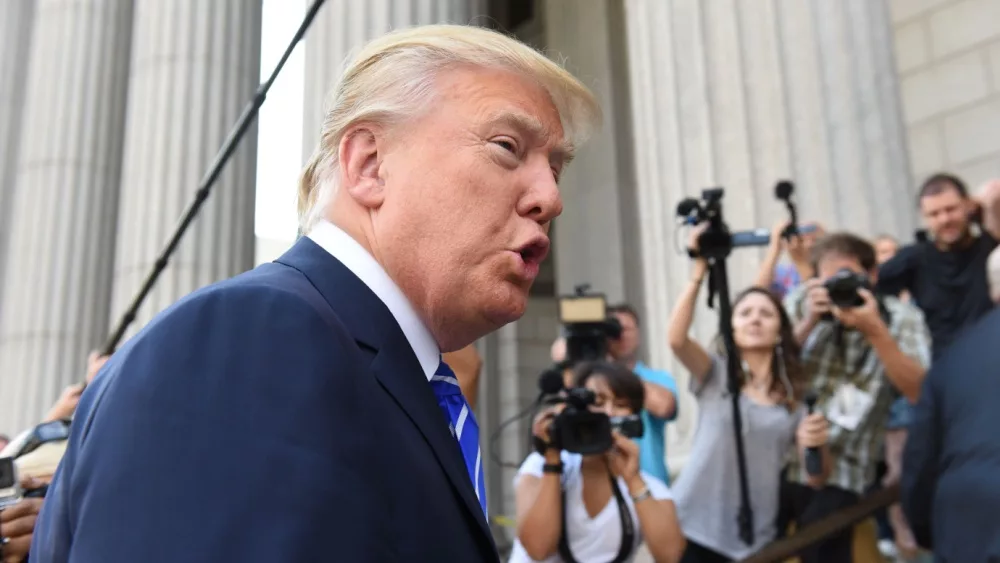
Attorneys for former President Donald Trump said in a court filing on Monday that he has not been able to get a bond to secure the $464 million civil fraud judgment against him. Trump’s lawyers said he needs to post a bond for the full amount by next week in order to stop New York Attorney General Letitia James from being able to collect while he appeals, but they have not had any success getting a bond.
The filing said: “Defendants’ ongoing diligent efforts have proven that a bond in the judgment’s full amount is ‘a practical impossibility.’ These diligent efforts have included approaching about 30 surety companies through 4 separate brokers. Their efforts, including “countless hours negotiating with one of the largest insurance companies in the world,” have proven that “obtaining an appeal bond in the full amount” of the judgment “is not possible under the circumstances presented.”
The filing added that other bond companies will not “accept hard assets such as real estate as collateral and will only accept cash or cash equivalents (such as marketable securities),” and also noted those companies typically “require collateral of approximately 120% of the amount of the judgment” totaling @ $557 million. In addition, sureties would likely charge bond premiums of approximately 2 percent per year with two years in advance—an upfront cost over $18 million .. the actual amount of cash or cash equivalents required ‘to collateralize the bond and have sufficient capital to run the business and satisfy its other obligations’ approach[es] $1 billion.”
In a filing last month, Trump’s lawyers asked that the bond amount be reduced to $100 million, but Monday’s filing argues he shouldn’t have to put up any bond at all. His attorneys are now arguing that the $464 million penalty is “grossly disproportional” and cited the argument that “there are no victims, as there were no damages and no financial losses.”
Trump also asked that if the state Appellate Division denies his request, they enter a temporary stay so he can try to make his case to the state’s highest court, the Court of Appeals. A 30-day automatic stay of the judgment handed down by Judge Arthur Engoron is set to expire March 25, at which point James would be clear to start seizing Trump’s assets unless the appeals court steps in.
Editorial credit: a katz / Shutterstock.com
